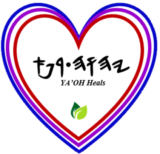Botanical and Common Names
- Family Labiatae
- Thymus vulgaris (Thyme, Common thyme, Garden thyme, Tomillo [Spanish], Tohmiyoxihutil [Nahuatl])
- Thymus serpyllum (Wild Thyme, Mother of Thyme, Serpyllum, Shepherd’s Thyme)
Cautions
- Do not use during pregnancy, externally or internally, as it is a uterine stimulant. There is little problem with normal cooking amounts.
- Thyme oil can irritate mucous membranes so must be well diluted.
Description
Thyme is native to the western Mediterranean and southern Italian regions, while the wild thyme is indigenous to southern Europe. It is now cultivated worldwide, preferring light, chalky soils. The plant is an aromatic perennial shrub of the mint family, growing to about sixteen inches in height and producing woody stems, small leaves, and pink flowers. Wild thyme is a tuft-forming evergreen herb, growing to a height of only three inches. It has square stems, small aromatic oval leaves, and spikes of bright mauve flowers. Garden thyme is the cultivated form of the wild thyme. There are many related species with each having a different volatile oil content. The aerial parts are harvested before and during flowering.
Key Actions
(a) Thyme
- antiseptic
- antispasmodic
- astringent
- antimicrobial
- antiparasitic
- antibiotic
- diuretic
- expectorant
- heals wounds
- increases blood flow to an area (topically)
- soothes coughs
- uterine stimulant
(b) Wild Thyme
- actions similar to those of Garden thyme, but less potent than the essential oil.
Key Components
(a) Thyme
- volatile oil (varying amounts of thymol, carvacrol, methylchavicol, cineol, borneol, and others)
- bitter principle
- saponins
- triterpenes
- flavonoids (apigenin, luteolin)
- tannins
- resins
(b) Wild Thyme
- volatile oil (thymol, carvacrol, linalool)
- flavonoids
- caffeic acid
- tannins
- resin
Medicinal Parts
Aerial parts, essential oil (garden thyme only), flowering tops (wild thyme)
Thymol has antiseptic properties effective against many organisms.
Thymol, carvacrol, and the saponins act as expectorants to loosen and thin phlegm thus relieving upper respiratory and sinus congestion.
Thymol and carvacrol help relax smooth muscles, thereby helping to relieve menstrual cramps or indigestion.
The tannins have astringent properties that relieve mild diarrhea.
When applied to the skin, thymol causes blood to rush to the site, creating a sense of warmth and relief from the pain and inflammation of arthritis, sprains, muscle aches, and possibly tension headaches.
Researchers have also demonstrated that the essential oils are effective in killing E. coli and certain other bacteria responsible for food poisoning.
Remedies
Infusions are used for chest infections, stomach chills, or irritable bowel.
A tincture is used for diarrhea or as an expectorant in chest infections.
A gargle from the infusion or diluted tincture is mused for sore throats.
A douche is made from the infusions to treat vaginal yeast infections.
A syrup is made from infusion for coughs and lung infections.
A chest rub from the essential oil is used for chest infections.
Essential oil is applied to insect bites, including scabies, and infected wounds or added to the bathwater for weakness and arthritic conditions.
Massage oil from the essential oil and combined with lavender oil makes an effective treatment for rheumatic pains or strained muscles.
Traditional Uses
The wild thyme is similar in action to the garden thyme, but slightly more stimulating and effective in preventing spasms.
Its antiseptic, antibacterial, and antifungal properties are used to treat all manner of infections including coughs, colds, sore throats, tonsillitis, flu, chest infections, and gastroenteritis. It also enhances immunity and helps the body fight against infection.
Its expectorant action, combined with its antispasmodic effect, is excellent for moving phlegm out of the chest easing tight, irritating, and hacking coughs.
Its antispasmodic effect is also helpful in releasing tension during irritable bowel syndrome and spastic colon.
Its astringent action, along with its antiseptic powers, makes it worth using to treat diarrhea and bowel infections and to re-establish a normal flora in the bowel, especially after antibiotics.
Thyme is a particularly good remedy for those suffering from poor circulation, and when used externally, makes a good liniment for arthritis or muscle pain. It can also be applied to cuts, abrasions, and infections.
The volatile oils and the flavonoids are known to relieve muscle spasms, as well as having a marked effect on aging by supporting the body’s normal funtion and countering its ageing effects.
Thyme is prescribed with other herbs for asthma, especially in children, and may also be helpful with hay fever.
In Costa Rica, it is used to expel intestinal worms, to treat warts, diarrhea, toothache, whooping cough, scabies, and flatulence. It is also considered as a powerful lung strengthener.
Used in aromatherapy, thyme is a remedy for PMS, stress, fatigue, and mild depression.
« Back to Glossary Index